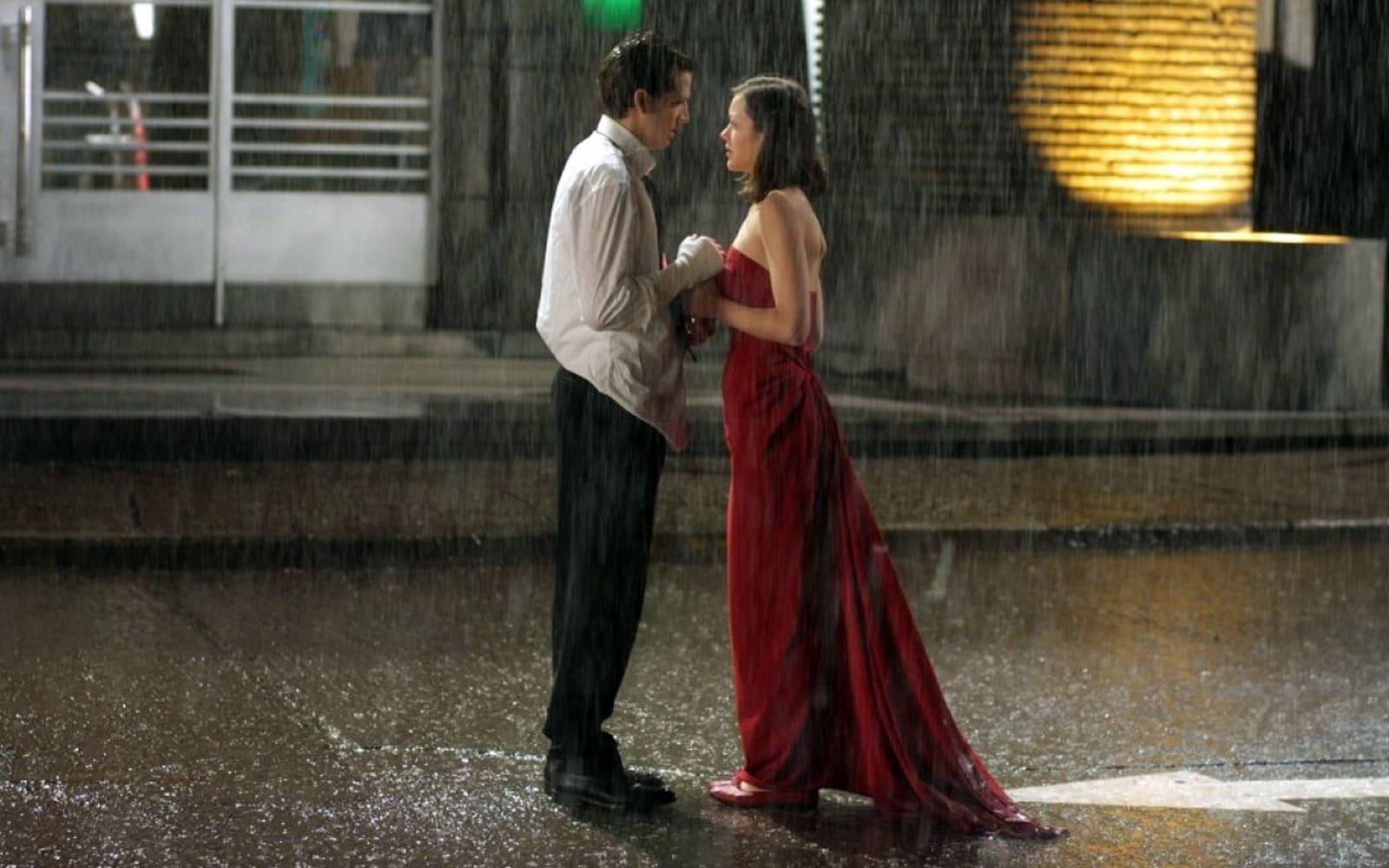Jeux D’Enfants by Yann Samuell (Review)

So let’s say you just finished watching Amélie and you enjoyed it. You enjoyed it a whole heckuva lot. You thought it was cute and magical, and if you’re like me, you probably had a crush something fierce on Audrey Tatou. But at the same time, you found yourself wishing the film’s humor had been a lot, well, darker and more twisted… perhaps even a bit sadistic. Well then, my friend, Jeux D’Enfants might just be the movie for you.
No offense to writer/director Yann Samuell, but it’s impossible to talk about Jeux D’Enfants without bringing up Amélie, because the first part of Jeux D’Enfants is so similar to Amélie that it’s almost blatant. Samuell goes for the same dreamy, fairy tale-esque mood, from the rich, vibrant colors that fill the screen to the clever use of special effects, from the imaginative set pieces (the movie’s version of the Garden Of Eden is worth the price of admission alone) to the playful score. At times, it felt like Samuell was simply trying to ride Jeunet’s stylistic coattails, but the film manages to create its own delightful quirkiness that prevents it from feeling too derivative.
Jeux D’Enfants centers around two characters, Julien and Sophie, whom we first meet when their 8 years old. Already, the two have become practically inseparable. However, their friendship has a competitive side to it. The two constantly engage in a series of stunts, each trying to outdo the other with one elaborate prank after the next. This competition carries over into adulthood, and over time, it becomes obvious that the two love each other and are (cue dramatic music) “destined to be together.” However, the years of competition have built a wall between them, and any sign of emotion, be it affection, betrayal, or jealousy, always seems to be misinterpreted as yet another stunt or dare.
While I was watching this, the audience was howling with laughter much of the time. The movie does have some hilarious sequences, but they’re primarily during the film’s first third, when Julien and Sophie are precocious children. I’ve already mentioned the Garden of Eden scene, which is classic. In another scene, Julien attempts to crash the wedding of Sophie’s sister. While hiding under a table, the two engage in a little game of “Show Me Yours And I’ll Show You Mine,” followed by a rather brief but hilarious discussion of sexual politics as only children can do. The highlight of these scenes is Joséphine Lebas-Joly, who plays the young Sophie. Her expressions were amazing, and were often worth more laughs than the funny action going on around her.
But when Julien and Sophie reach adulthood, their childish pranks cease being humorous and simply feel, well, childish and petulant. I found it very hard to feel for characters so completely dense and mean-spirited. By the time the movie winds down to its twist (and twisted, but highly contrived) ending, I had really lost quite a bit of interest in whether or not Julien and Sophie would ever get together. The two squandered their lives away, constantly making important choices simply to spite the other. Occasionally, one would have a sudden flash of remorse and realize that they’d thrown their life and love away. But soon enough, the game would start up again, and all bets were off.
In retrospect, I suppose the ending is fitting, considering how self-absorbed and selfish the couple have become. But I left the movie feeling strangely troubled. I’ve found that black comedies work best when their humor is mixed with pathos, rather than just plain old meanness. They might leave you laughing until your sides hurt, but at the same time, they leave you feeling a wee bit guilty and saddened. There’s a sorrow mixed in, a woundedness that often leaves you feeling far more sympathetic to the often pitiable characters and their plight (such was the case with Wilbur Wants To Kill Himself and Save the Green Planet, two of the best movies I saw this year).
On the contrary, I rarely felt any sympathy for Julien and Sophie, no matter how much they were supposed to be together. And I couldn’t really bring myself to laugh at the remorseless cruelty they visited on each other, and on those around them, all in the name of a childish game they never grew out of.
